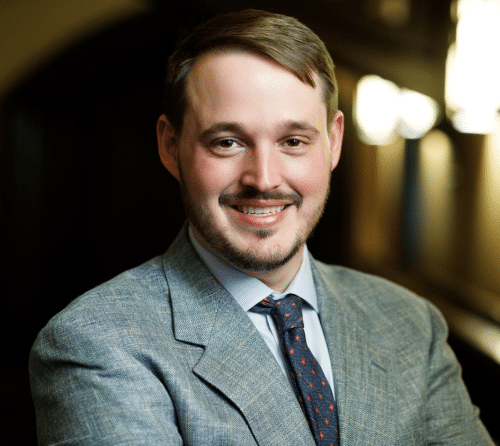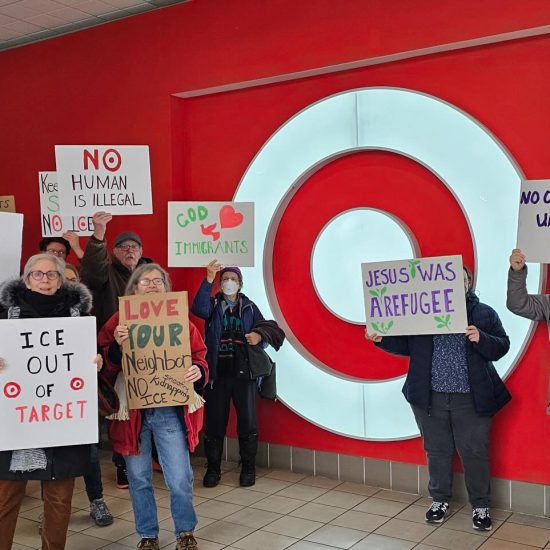
Last week, Florida Governor Ron DeSantis chartered a flight to Martha’s Vineyard for about 50 Venezuelan migrants as part of a political stunt intended to criticize sanctuary jurisdictions. Expecting chaos to ensue, DeSantis was unprepared for the people of Martha’s Vineyard – including churches – to come to the aid of the migrants who were, according to Sherriff Javier Balazar, “lured under false pretenses” to the island by promises of food, housing, and English lessons. Stunningly, Texas Governor Greg Abbot has seemingly become jealous of the attention DeSantis has received and recently sent a busload of migrants, including a one-month-old baby to Vice President Kamala Harris’ residence.

Michael Woolf
While much of the criticism of these actions has rightfully focused on the deception and cruelty, Christians ought to take it one step further: these governors have not only trafficked vulnerable Venezuelans – they have trafficked Christ.
Matthew 25 gives a view of an eschatological encounter that ought to give anyone pause, because Jesus not only identifies with the poor, vulnerable, and imprisoned – Jesus is these people. What is done to them, is done to Jesus himself. And it is what we do and do not do for Jesus that becomes the single most important qualifier for salvation or damnation. Take these verses for instance:
‘You who are accursed, depart from me into the eternal fire prepared for the devil and his angels, for I was hungry and you gave me no food, I was thirsty and you gave me nothing to drink, I was a stranger and you did not welcome me, naked and you did not give me clothing, sick and in prison and you did not visit me.’ Then they also will answer, ‘Lord, when was it that we saw you hungry or thirsty or a stranger or naked or sick or in prison and did not take care of you?’ Then he will answer them, ‘Truly I tell you, just as you did not do it to one of the least of these, you did not do it to me.’
That passage makes the stakes of our lives clear – if we miss Jesus as he is incarnated in this world in the “least of these,” then we will be left hat-in-hand asking where Jesus was that we didn’t offer him food, water, and a place to stay. Perhaps we need to exercise some creative imagination in this passage. We can imagine the political leaders of our time asking the same question, “Lord, when did we traffic you? When did we lure you under false pretenses or abuse you for political gain? When did we deceive you?” Whatever we do to the least of these, we do to Christ.

Greyson Joralemon / Unsplash
DeSantis has often used Christian imagery on the campaign trail, recently saying that he will “put on the whole armor of God” to fight leftism. Governor Greg Abbott’s Twitter and Facebook accounts routinely post Bible verses. But Matthew 7:21 tells us, “Not everyone who says to me, ‘Lord, Lord,’ will enter the kingdom of heaven, but only the one who does the will of my Father in heaven.” Using Jesus’ name to score political points does not indicate righteousness, especially when DeSantis has clearly stated that migrants in Florida and Texas cannot expect to receive “accommodations, sustenance, clothing and more options to succeed” and that only designated sanctuary states ought to provide such things. If the least of these are not welcome in Florida or Texas, then Jesus isn’t either – no matter how many times the governor uses Biblical imagery to attract votes.
It seems that many in America these days want to put on the whole armor of God and fight enemies real and imagined, but very few want to do the Christ-like work of making a society where everyone has access to flourishing. That is not just the governor’s job; it is the work of an entire society that must come together to create those conditions. We all have the responsibility to shape our world so that Christ is welcome. In this case, however, DeSantis and Abbot’s callous treatment of migrants ought to throw the urgency of that work into sharp relief. After all, none of us want to stand before God and give an account of how we were too busy acting pious to help Jesus when he needed it most.
The Rev. Dr. Michael Woolf is the senior minister of Lake Street Church of Evanston, IL. He holds a Doctor of Theology (ThD) degree from Harvard Divinity School and currently teaches theology as an Adjunct Theology Professor at Lewis University and religion as a Lecturer and Digital Fellow at Brandeis University’s Osher Lifelong Learning Institute. His writing focuses on sanctuary, reparations, and theology, and you can follow him on Twitter at @RevMichaelWoolf






